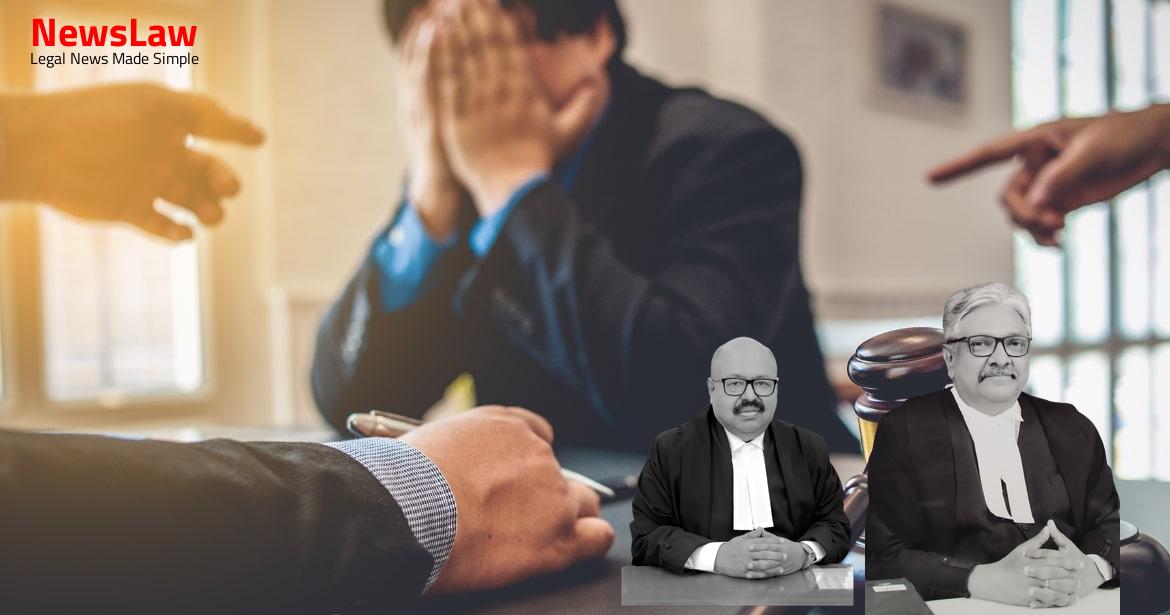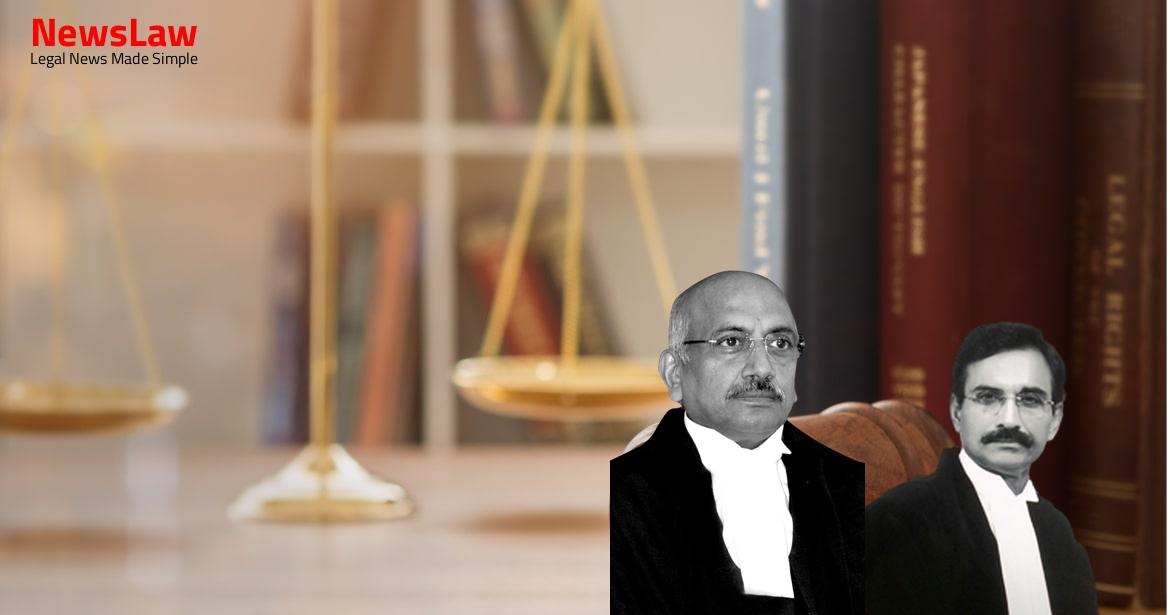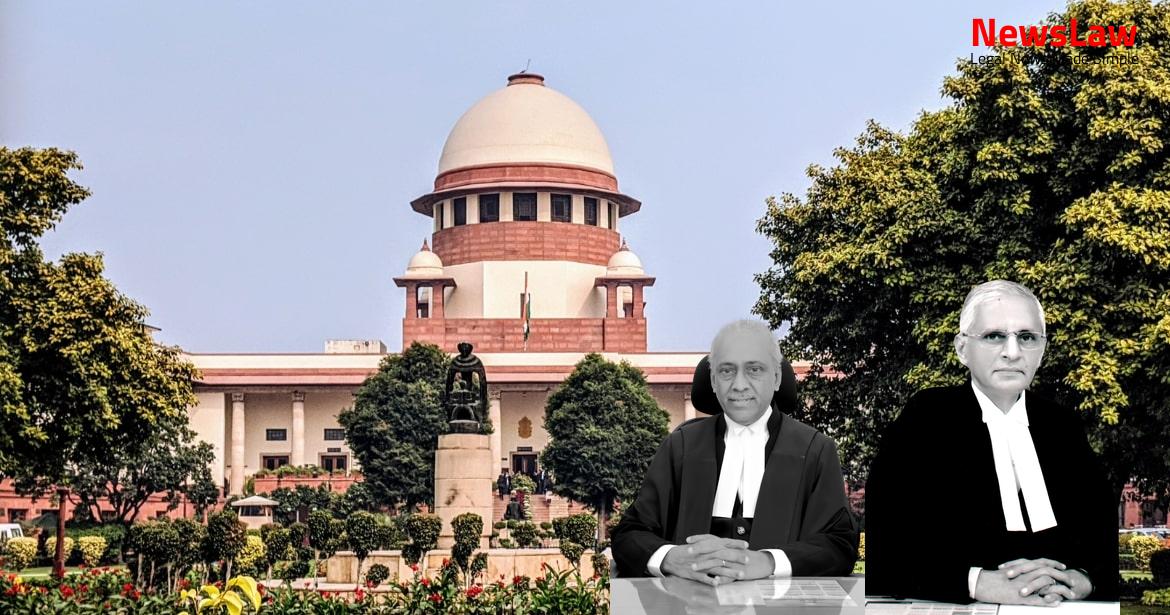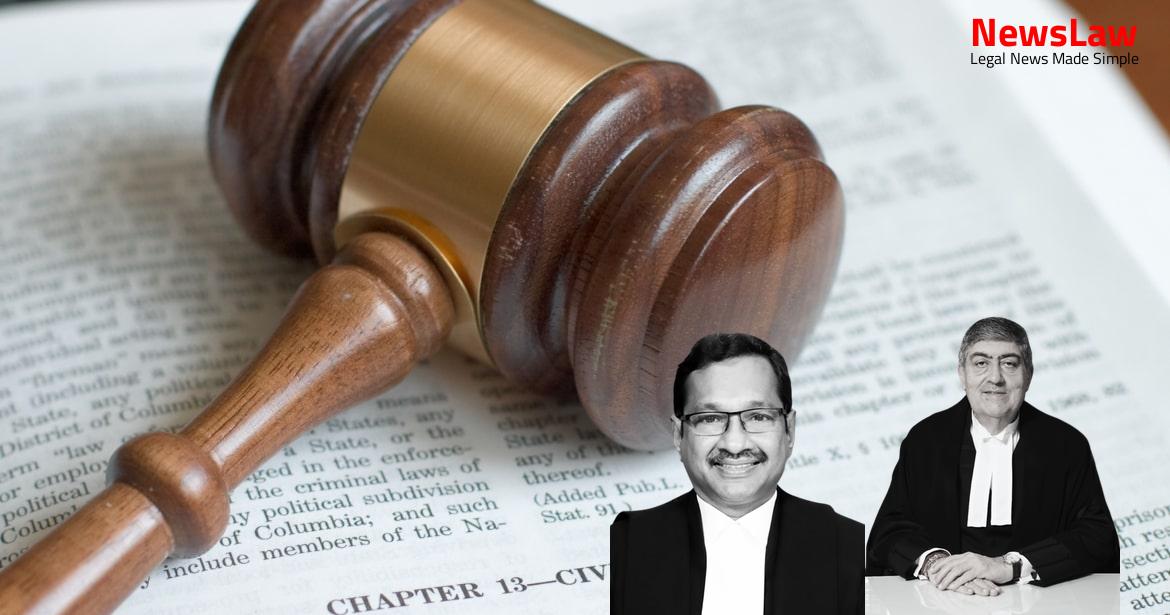Delve into the intricate legal analysis of court jurisdiction in second appeals in Punjab and Haryana. The case highlights the limitations and boundaries set by Section 41 of the Punjab Courts Act, 1918, on the court’s interference with findings of fact. Follow the case’s journey through various appellate courts and understand the significance of proper consideration of evidence on record. #LegalAnalysis #SecondAppeal #CourtJurisdiction
Facts
- Mother executed a will dated 16.07.1998 in favor of her two other sons, including the appellant.
- Appellant and other defendants contested the suit, claiming the will dated 19.4.1998 was forged.
- Defendants appealed, arguing that as Class I heirs, they inherited 1/3 right each since Sucha Singh died intestate.
- Defendants claimed mutation was illegally carried out, resulting in their names being entered for the 1/3 right.
- The trial court decreed in favor of the plaintiffs who were bequeathed all rights under the will dated 19.04.1998.
- Appellate Court found suspicious circumstances surrounding the will dated 19.04.1998.
- Mother of Sucha Singh was living with him, making it unlikely for him to exclude her from the will.
- Registration of the will after the death of the testator raised doubts.
- First appellate Court concluded that the will dated 19.04.1998 could not be accepted as genuine.
- D1 will was found to be valid.
- First appellate Court set aside the trial Court judgment granting legal rights to the mother of Sucha Singh.
- Plaintiffs appealed under Section 100 of the Code of Civil Procedure.
- High Court in the impugned judgment restored the trial Court decree based on the will dated 19.04.1998.
- Appellate Court reversed the trial Court decree where plaintiffs were declared owners based on the will dated 19.04.1998.
Also Read: Legal Analysis of Assignment and Ratification in Property Law
Arguments
- Mr. Rakesh K. Khanna, learned senior counsel, pointed out the previous view taken by the Court in the Pankajakshi case regarding the applicable laws for the High Court of Punjab and Haryana.
- The Court issued notice based on this premise, however, at that time, the judgment in the Pankajakshi case had not been reported.
- In the Pankajakshi case, a Constitution Bench judgment, it was found that in a second appeal in Punjab and Haryana High Court, Section 41 of Punjab Courts Act, 1918 would be applicable.
- Mr. Rakesh K. Khanna represented the appellant while Mr. Partha Sil represented the plaintiffs during the proceedings.
- The notice issued on 06.03.2017 highlighted the lack of framing of substantial questions of law before allowing the second appeal by the High Court.
Also Read: Analysis of Rule 54 in Disciplinary Proceedings
Analysis
- Section 41 of the Punjab Courts Act, 1918, governs the fate of a second appeal in Punjab and Haryana.
- In a second appeal in Punjab and Haryana, substantial questions of law do not need to be framed, but the jurisdiction is limited by the boundaries set in Section 41 of the Punjab Courts Act, 1918.
- In a second appeal, the court cannot interfere with findings of fact based on errors, including those in documentary evidence.
- The scope of jurisdiction in a second appeal in Punjab and Haryana was further explained in the case of Avtar Singh & Ors. v. Bimla Devi & Ors. 2021 SCC Online SC 827.
- The High Court cannot interfere with findings of fact based on errors in law or procedure, not just factual errors.
- The High Court cannot substitute its judgment for that of the first appellate court based on a different view it may have.
- Findings of fact in second appellate jurisdiction under Section 41 of the Punjab Courts Act cannot be interfered with.
- Unreasonable findings of fact or those rendered by overlooking the record are not subject to second appellate review.
- High Court’s findings based solely on reappreciation of the record and interference with lower courts’ findings cannot be upheld.
- Impugned judgment was delivered prior to the judgment in Pankajakshi (Dead) Through Legal Representatives and Others, creating a situation where the learned Judge proceeded without formulating a substantial question of law.
- The Court sets aside the impugned judgment.
- The findings and approach of the Court are incompatible with the power available in a second appeal as defined by the Court.
- The High Court did not carefully consider the evidence on record.
- In a second appeal, the Court’s jurisdiction, as per this Court, is very narrow.
Also Read: Interpretation of Custody in Contempt of Court Case
Decision
- The High Court will consider the matter at the earliest due to the suit originating in 1998.
- The High Court is requested to prioritize the second appeal.
- The appeal has been allowed and the case is remanded back to the High Court.
Case Title: HARDIAL SINGH Vs. BALBIR KAUR . (2022 INSC 291)
Case Number: C.A. No.-001925-001925 / 2022



